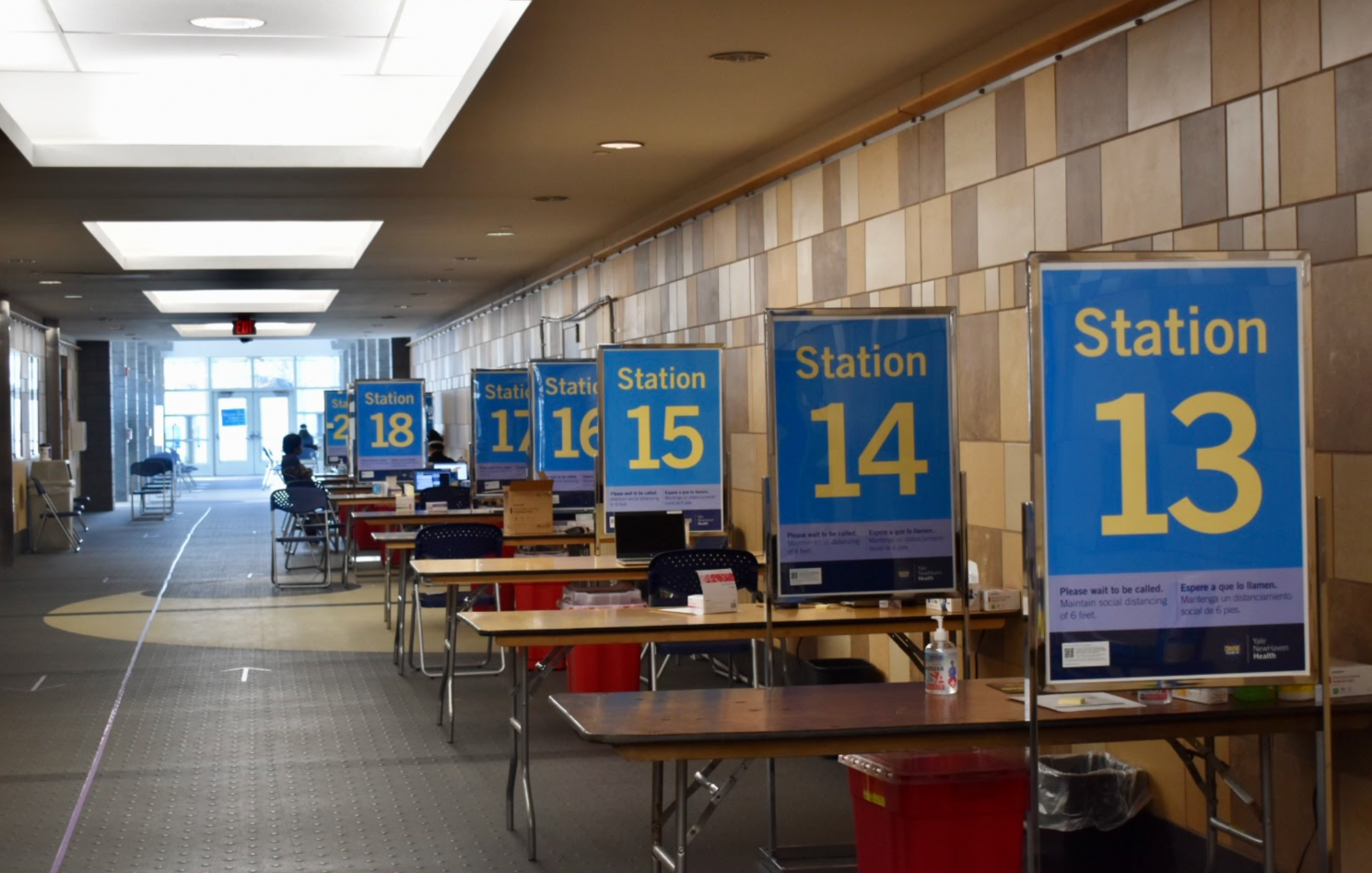
Courtesy of Regina Sung
For the last six months, cities around the country have been grappling with the inequitable rollout of COVID-19 vaccinations. In New Haven, organizations have been making efforts to combat vaccine hesitancy and medical inequity by offering resources and education to communities of color.
Nationally, communities of color have been disproportionately affected by the COVID-19 pandemic. Black people were found to be twice as likely, and Latinx Americans 2.4 times as likely to have died of COVID-19 in comparison to white people. Early data on Connecticut vaccination rates suggested that rates among Latinx and Black residents were lagging significantly behind those of white residents. These trends have been attributed to various factors, such as barriers to accessing vaccine shots, vaccine hesitancy among people of color and a history of structural racism in the medical field. Organizations in the Elm City — such as Unidad Latina en Acción and the NAACP — have raised alarms about the vaccine’s inequitable rollout and started to strategize the most effective communication strategies.
Dori Dumas, the president of the Greater New Haven National Association for the Advancement of Colored People said that her organization was “committed to addressing health inequities” by spreading information to communities of color.
“Certainly we are advocating that our communities need to be a priority, and our communities need to have as many people having access to getting the vaccine, [and] having information about the vaccine,” Dumas said in an interview with the News. “Especially in the Black and brown communities when we are the ones dying at the highest rates and being affected the most.”
Many efforts have been focused through organizations and leaders that have long standing trust with communities of color. The city’s health department, for example, hosted an information session with the pastor of the Dixwell Avenue Congregational United Church of Christ in order to reach Black New Haveners.
Meanwhile, in the neighborhood of Fair Haven, home to a significant portion of New Haven’s Latinx community, the Fair Haven Community Health Center launched the bilingual campaign, “Vaccinate Fair Haven!” with support from numerous local officials. Over 400 volunteers were recruited to knock on the neighborhood’s 5,648 doors, handing out informational flyers and offering vaccination appointments to the Fair Haven community. FHCHC partnered with 16 grassroots community organizations like Unidad Latina en Acción, which held a candlelight vigil and rally to raise awareness about vaccinations for Latinx New Haveners.
Canvassing efforts continued for several months, with organizers making several visits to Fair Haven residences after more groups became eligible for the vaccine.
“Health care is a human right,” said David Weinreb, an FHCHC volunteer coordinator for the vaccination campaign. “We’re going to keep planning strategically around the best ways to get the word out, especially as the message changes. There’s meaningful follow-up to do in the neighborhood.”
The campaign’s efforts appear to have been successful, completing its goal of knocking on every door on May 5, according to an FHCHC press release. In April, 79 percent of those vaccinated by FHCHC were people of color.
“The Vaccinate Fair Haven! efforts to address the racial/ethnic disparities by reducing the systemic barriers language, transportation, information access, internet access have resulted in greatly improved vaccination rates for our neighbors,” the clinic said in the press release. “[We] targeted a low-income neighborhood — a New Haven section rich with culture and largely populated by Latines and African Americans by mobilizing neighborhood residents and volunteers.”
According to the office of Gov. Ned Lamont, as of May 21, more than 1.8 million doses of COVID-19 vaccine have been administered in Connecticut.







